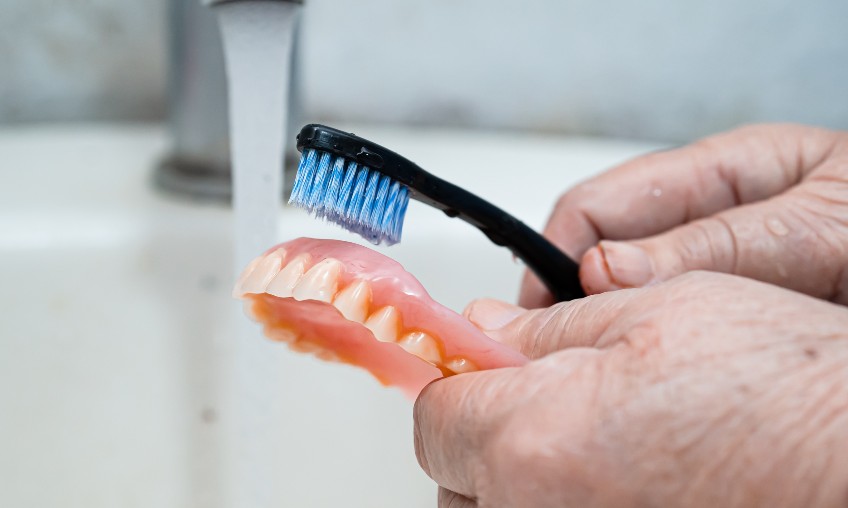
By Jay Maillet, DMD, MPH
Dentures give you back your smile when you have missing teeth. They help your overall health and your appearance, advises the American Dental Association (ADA). After tooth loss, dentures certainly make it easier to eat and speak.
Daily dental habits change a little with dentures. Clean your remaining teeth plus gums, tongue and the roof of your mouth with a soft-bristled toothbrush to remove bacteria and keep a healthy blood flow in your mouth, the ADA says. Gently brush before you insert dentures at the start of your day, and when you remove them before bedtime.
Be sure to clean and care for your dentures so they work their best.
Regular checkups help people with dentures to avoid problems such as gum disease and oral cancer.
Dentist Visits for Denture-Wearers
Even if you have no natural teeth and are happy with your dentures, it’s still important to visit your dentist regularly.
Seeing the dentist helps to protect oral hygiene and prevent gum disease. Also, regular checkups help you to avoid other oral health problems.
Make an appointment right away if:
- Your dentures don’t fit well anymore
- Your remaining teeth shift or feel loose
- Your mouth or lips hurt or feel sensitive or numb
- A lump, thickening, rough spot or crust appear in your mouth or throat
- You have a hard time chewing, swallowing, talking or moving your tongue or jaw
- You feel like something is caught in your throat
- Your voice changes or turns hoarse
During a check-up, the dentist will:
- Check your appliance for wear and tear
- Adjust your denture for fit and performance, if necessary
- Examine the mouth and upper throat for signs of oral cancer
At DentaQuest, part of Sun Life U.S., we’re working to improve the oral health of all. Find more helpful information to protect your oral health and overall wellness.
Jay Maillet, DMD, MPH, serves as DentaQuest’s dental director for Massachusetts, New Hampshire, and New York. He earned his DMD degree from Tufts University School of Dental Medicine and then practiced in both private practice and public health settings across New England. In addition to his clinical credentials, Dr. Maillet has also earned a Master of Public Health with a concentration in epidemiology from Harvard’s T.H. Chan School of Public Health.
 Preventistry Pulse Image
Preventistry Pulse Image
PREVENTISTRY PULSE
The newsletter designed for anyone who wants to improve oral health for themselves, their families, customers or communities.





